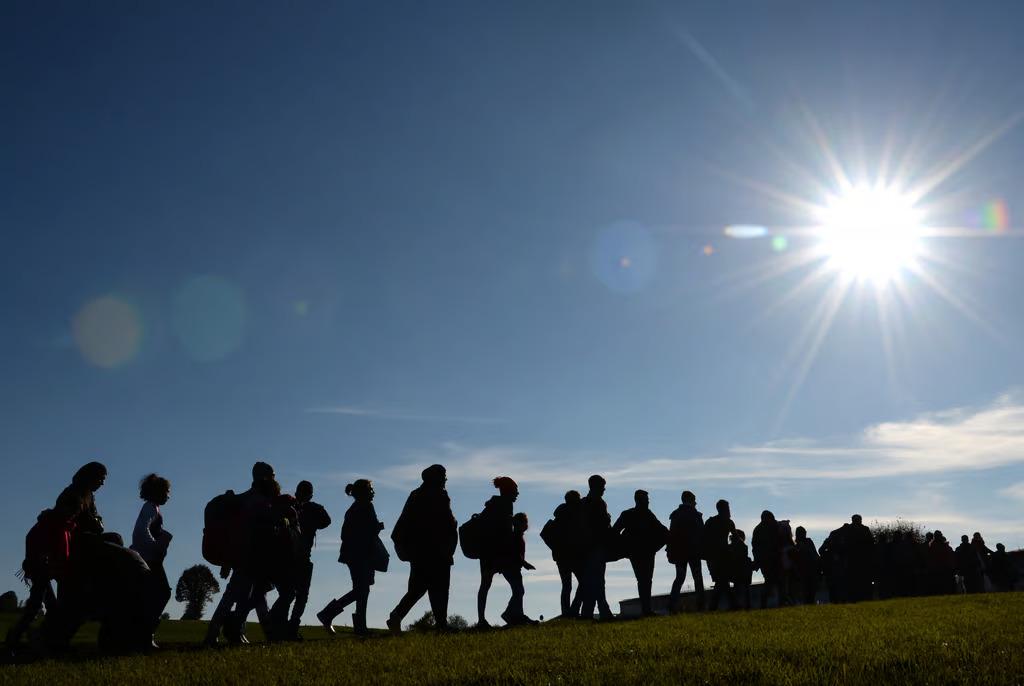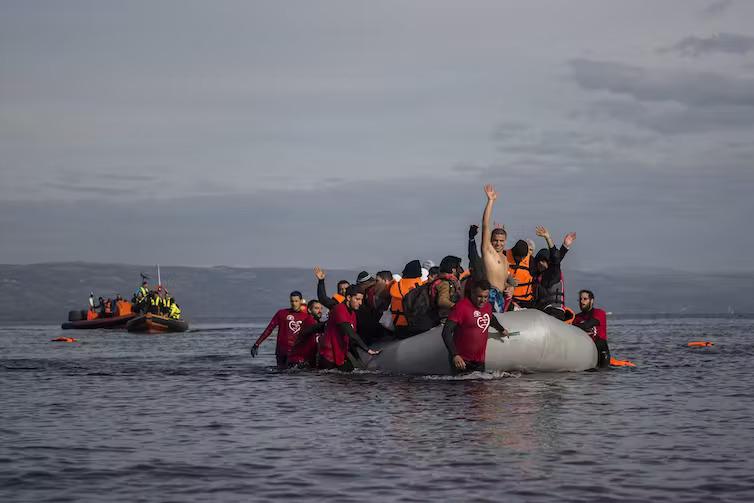The end of the refugee crisis in Europe is not on the horizon yet The age of crisis
With the raging crisis and interregional conflicts in the Middle East and North Africa (MENA) region, refugee influx to Europe and the US has risen dramatically. The looming refugee crisis has reached unprecedented scales in the last ten years, triggering debates in European countries regarding extra security measures against illegal migration.
Recently, the European Union (EU) member states initiated a new round of discussions regarding countering illegal migration and human trafficking. Initial discussions were about the possibility of introducing a solidarity mechanism, for instance, triggering relocations of migrants or any other form of solidarity, such as financial contributions to countries in difficulties or the provision of equipment.
In the wake of the looming crisis, the EU’s institutions and its antiquated laws for migration, specifically the Dublin Regulation, proved inadequate for the task. The EU did not learn the lessons from 2015 and is once again sleepwalking towards another crisis as migrants increasingly cross its borders. This will likely become a worsening situation in light of the Israel-Hamas war and renewed tensions in Syria and Libya.
Moreover, the EU is ready to fund walls, fences, and barbed wire in third countries to prevent migrants' departures and boost surveillance at EU borders as part of a migration ‘solidarity’ mechanism. Some leading EU member states like France, Germany, the Netherlands are favourite destinations for illegal migrants and asylum seekers.

Therefore, the government of Chancellor Olaf Scholz has been trying to reduce the number of asylum seekers arriving in Germany for months, an effort many Germans perceive as increasingly urgent amid a recent outbreak of antisemitic incidents, many of which conservative politicians have blamed on migrants.
In this vein, in October 2023, the EU states reached a preliminary agreement that paves the way for establishing common rules to manage an unexpected mass arrival of asylum seekers, a crucial element of the EU’s migration reform. However, the lack of a common vision regarding the methods of preventing illegal migration increases the standoff between member states, namely Germany and Italy.
The newly proposed Crisis Regulation sets out rules that would apply in exceptional times when the bloc's asylum system is threatened by a sudden and massive arrival of migrants, as was the case during the 2015-2016 migration crisis. To cope with this unexpected influx, member states could apply tougher measures, such as keeping asylum seekers at the border for up to 20 weeks while their requests for international protection are being examined.
More than 36,000 migrants arrived in the Mediterranean region of Europe from January to March 2023, nearly twice the number compared with the same period in 2022, according to the latest figures from the UN’s refugee agency (UNHCR). It is the highest number since the refugee crisis that peaked in 2015 and continued into the first months of 2016 when the arrival of more than one million migrants on Europe's shores led EU solidarity to collapse into bickering and border chaos.

Most of these refugees arrived in Europe by sea, while a tiny portion by land. The continuous arrival of refugees gave rise to far-right political parties and politicians with a clear agenda of "eliminating illegal migration".
As a result, far-right populists, like France’s Marine Le Pen, as well as hard-right parties, Italian Prime Minister Giorgia Meloni and her far-right, anti-immigrant Brothers of Italy party made migration central to their victorious campaign in last year’s elections. With political debates over migration often dominated by short-term strategies, many persistent drivers, including persecution, conflict and war, go unaddressed.
Despite the EU’s commitment to introduce more pragmatic regulations in order to cope with illegal migration, attempts of some member states to push through their interests appear to be the main obstacle to adopting new rules. For example, Hungary, Greece, Poland, Slovakia and Baltic states take a more pragmatic approach toward the problem while undermining the interests of the union. Hence, such a stance raises questions about whether the EU can push members to adopt the long-awaited migration regulations.








